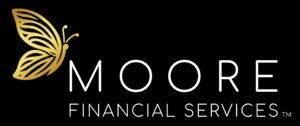
If the store is just a few blocks from your home, avoid using the car. If there is a reasonably fast public transportation that can take you to work, use it at least half of your working days. You can save thousands of dollars on gas each year by following this advice. If you have too much unsecured debt with high monthly payments, you can bring some ease to your monthly finances by consolidating your debt. You will unify and reduce the monthly payments easily with a debt consolidation loan. Just make sure that after consolidating your debt you do not max out your credit cards again or you will end up with a worse debt situation. But do not close your credit card accounts right away either, because that would damage your credit. Keep the older ones, make timely monthly payments and avoid overspending and your debt and credit situation will soon improve.
For example, if you spend $3 a week in ATM withdrawals’, that’s over $150 per year. Try to eliminate withdrawals from ATM’s outside your banks free network, make a trip to your bank and withdraw the cash you’ll need over the course of week, get a debit card and limit your use of cash or cut back to twice a month (or less) and that’s at the least, a $75 per year savings! Increase your car insurance deductible to $1000. Shop around for better insurance rates. Look into refinancing any open auto loans. Conserve utilities when possible. If you still have a land line phone, get rid of it. You probably use your cell phone most of the time anyway. If you have cable or satellite TV, make sure that you have the plan that best fits your needs, think about eliminating as many premium channels as possible. Consolidate your credit card and other consumer debt into a home equity loan and then cancel the cards, cut them up, and don’t apply for new ones.
For any business to function smoothly, it is very important that you maintain accurate records of all the transactions, market trends, profits and losses incurred by the company. Based on this data, you can plan out your budget for the future. But, keeping a record using a huge amount of data is not an easy job at all. Constructing the budget of an organization is indeed a daunting task. It is almost impossible to do it manually if you have loads of data and information. What if the market trend suddenly changes or the economy topples? You will have to re-structure the entire report and all the calculations have to be done again. If any kind of error is made by the person who maintains the records, then the future calculations can go haywire. Corporate budgeting software has been of immense help in this area. This software will help you to organize your expenses in a much better way.
If you are like most people you have tried to budget your money. And if you are like most people, somewhere along the line you have probably strayed from that budget. This article will discuss dome basic budgeting techniques that can be used to save you a few extra dollars and keep you on track. Don’t commit your budget to memory only. You may be surprised to find out that many people do not write their budget down. This can be a recipe for disaster. No matter how good your memory may be, it will not hurt you to have a back up. It is good budgeting practice to write down how much money should be contributed to which expense. Keep track of your spending. Another big mistake that people encounter when trying to stick to a budget is not keeping track of how much they have spent on certain things.
